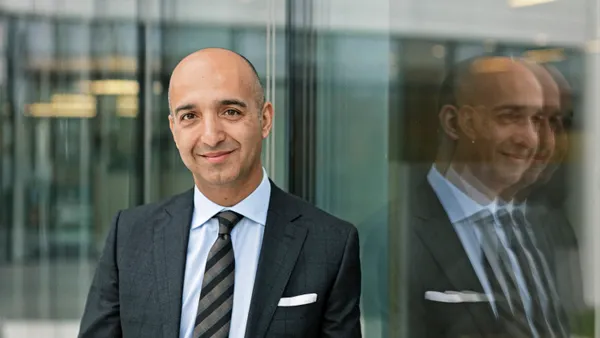Today, a brief rundown of news from Amgen and Servier, as well as updates from Merck & Co., Precigen and Sofinnova Investments that you may have missed.
Speaking on a conference call Tuesday, executives at Amgen again fielded a long slate of analyst questions on the company's obesity drug development. But unlike in May, they had little new information to share about the progress of their chief candidate, called MariTide and now advancing through Phase 2 testing. Still, they reiterated their confidence that MariTide could be "differentiated" from competitors like Novo Nordisk's Wegovy and Eli Lilly's Zepbound and, as a once-monthly shot, easier for patients to stay on and benefit from. — Ned Pagliarulo
Shares of Intra-Cellular Therapies were down almost 3% Wednesday despite an earnings report a Mizuho Securities analyst described as "high quality." The neuroscience company recorded $161 million in revenue during the second quarter, almost all of which came from Caplyta, a drug for schizophrenia and bipolar disorder. Caplyta net sales were up 46% compared to the same three-month period from last year, beating Wall Street expectations. Intra-Cellular also announced the appointment of Sanjeev Narula, a Viatris veteran who will succeed the company's current CFO, Lawrence Hineline. — Jacob Bell
The Food and Drug Administration on Tuesday approved Servier's Voranigo for the treatment of glioma, a cancer of the brain and central nervous system. The drug, which was originally developed by Agios Pharmaceuticals, works by impeding the activity of two mutant enzymes, IDH1 and IDH2. The approval triggers a $200 million payment to Agios from Servier, which bought Agios' cancer drug business in 2021. Agios will also receive $905 million from Royalty Pharma, to which it sold its royalty rights on Voranigo earlier this year. — Ned Pagliarulo
Merck & Co. and Daiichi Sankyo announced on Tuesday the addition of an experimental T cell engager to the broad alliance the companies signed last year. Their partnership will now include MK-6070, which Merck acquired in its buyout of Harpoon Therapeutics in January. Daiichi Sankyo will pay Merck $170 million upfront and the companies will now jointly develop and sell MK-6070 globally, except in Japan. Merck and Daiichi Sankyo’s alliance had centered on three of the Japanese company’s antibody-drug conjugates. — Delilah Alvarado
Cell and gene therapy developer Precigen Therapeutics on Wednesday said it would lay off 20% of its workforce as part of a “strategic reprioritization.” The restructuring is meant to help the company prepare for filing and potentially commercializing a gene therapy for recurrent respiratory papillomatosis, a rare condition involving benign growths in air passages. Precigen will also shut down a Belgium-based subsidiary called ActoBio. — Delilah Alvarado
Sofinnova Investments, a prominent backer of biotechnology companies, has brought on Maha Radhakrishnan as an executive partner. Radhakrishnan most recently served as chief medical officer at Biogen. Prior to that, she held leadership roles at Sanofi, overseeing medical strategy for products and development programs targeting diabetes and cardiovascular conditions. — Jacob Bell














